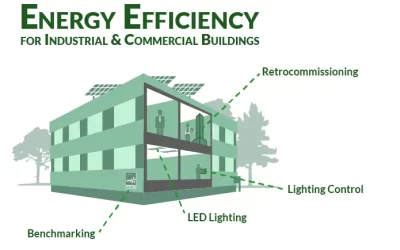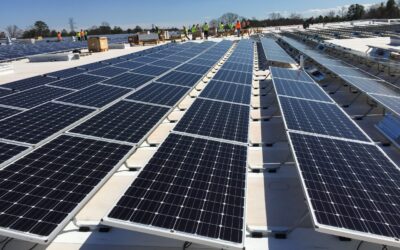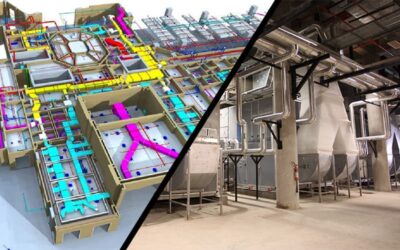What does that mean? Well, first, thank you for your attention! We now find ourselves mandated to embrace electricity as the primary source of heating for our facilities (see the image for more details). Regardless of your standpoint, it’s evident that we are moving in this direction.

Right: Electrification raises critical considerations for architects and engineers. Do fossil fuels produce excessive carbon emissions that harm the ozone? Are fossil fuels a finite resource? How can we progress if we don’t take action? Are wind, solar, and water viable options for powering our buildings? Elon Musk contends, “If you wanted to power the entire U.S. with solar panels, it would take a fairly small corner of Nevada, Texas, or Utah; you only need about 100 miles by 100 miles of solar panels to power the entire United States… The batteries you need to store the energy, to ensure continuous power, would occupy just 1 square mile.” While we should fact-check these claims, it’s clear that we must move forward with electrification for our buildings.
Wrong: Electrification also prompts valid concerns from architects and engineers. Can our current grid infrastructure support widespread electrification? Don’t we still rely on fossil fuels to generate the electricity that powers our grid? Is electrification truly a cost-saving and superior alternative? Fossil fuel utilization has undergone significant refinement, resulting in impressive efficiency and effectiveness. Is it economically viable to make this shift? Why fix something that isn’t broken? While we acknowledge the finite nature of fossil fuels, we must consider the current utilization rate and its year-over-year increase. How long until we deplete this resource? We need not rush into a decision!
Indifferent: Some may remain indifferent, wondering how electrification impacts their day-to-day work. They may not be ready to embrace electric cars and prefer traditional gasoline vehicles. Nevertheless, the allure of a sleek and low-maintenance Tesla cannot be denied. Perhaps we can start by adopting electric lawnmowers. While I personally am not ready to buy an Electric Vehicle, I do have an electric lawnmower and weed eater…
Architects and engineers play a pivotal role in unraveling the complexities of this subject matter. It is important to recognize that solutions are seldom straightforward. Fortunately, we are blessed with brilliant minds committed to making well-informed decisions. Could SMRs (Small Modular Reactors) be a solution to help with grid infrastructure? What are the drawbacks of that? We highly value your insights and perspectives and would appreciate your feedback. If you are interested, we can explore the nuances of the thoughts mentioned above in greater detail. It is essential, however, that we maintain an open-minded approach and acknowledge that the optimal solution may lie somewhere between the extremes. By the way, have we truly embarked on another transition to new refrigerants?
Toodles, JAdams
PS – If you’ve made it this far, I extend my gratitude once again! Please feel free to share your thoughts, and let me know if you would like to engage in further discussion on these subjects.

![power-grid-3-1920×885[1]](https://jphes.com/wp-content/uploads/2023/06/power-grid-3-1920x8851-1.png)






0 Comments